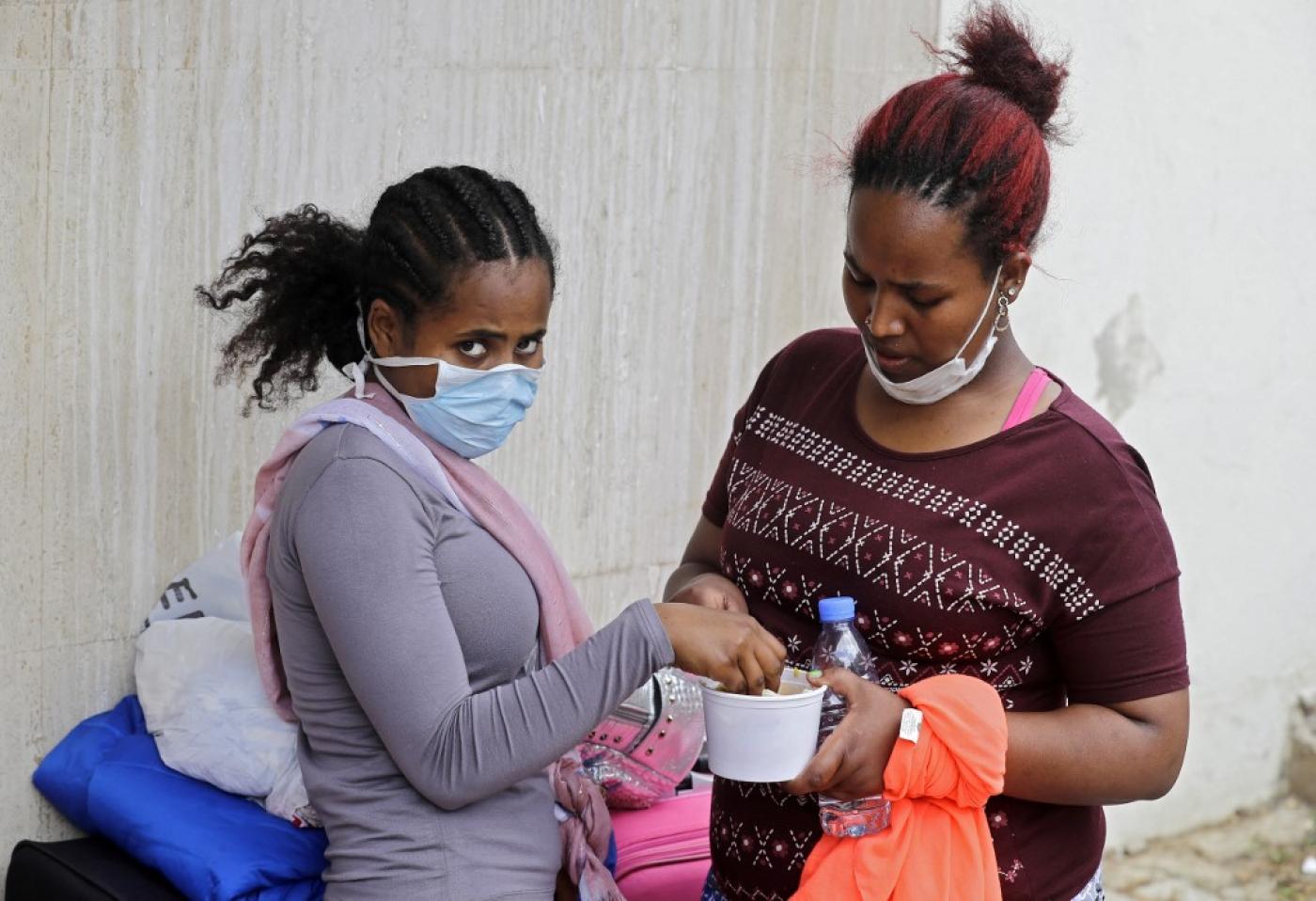Hundreds of thousands of Ethiopian workers in Lebanon could be left without legal protections and minimum wage requirements, as revealed by a recently signed bilateral labour agreement between the two countries.
Important Highlights:
The undisclosed agreement, signed in April, was publicly promoted by officials from Ethiopia and Lebanon, but a leaked 12-page draft and eight-page worker contract seen by Middle East Eye has raised concerns regarding the rights of workers.
- The document does not include a minimum wage, relies on Lebanese laws that exclude protection for migrant workers, and may allow for passport confiscation.
- Human Rights Watch has reviewed the agreement and stated that it provides “weak and non-existent” privileges and protections for Ethiopian workers compared to other foreign nationals in Lebanon.
A Legacy of Exploitation:
For decades, the Middle East has been a popular destination for women in Asia and Africa seeking employment as domestic workers, with Lebanon being one of the most sought-after countries.
- Unfortunately, many Ethiopian workers who migrate to Lebanon end up falling victim to a system that often turns a blind eye to their well-being and safety.
- Over the last twenty years, the deaths of countless Ethiopian workers in Lebanon have been attributed to suicides, accidental incidents, and homicides, yet investigations by local authorities in both Lebanon and Ethiopia have been almost non-existent.
- Shockingly, in 2017, it was estimated that at least two migrant domestic workers were dying in Lebanon every week, while numerous others have gone missing and are still unaccounted for years later.
Recent studies have shown that over two-thirds of foreign workers in Lebanon have experienced sexual harassment on the job, revealing a system where widespread abuse is rife.
Kafala:
- The discriminatory “kafala” or sponsorship system regulates the legal status of foreign workers, tying them to their employers and limiting their ability to leave their workplaces, even under severe circumstances.
- Human rights activists have described the kafala system as a form of modern-day slavery, with many workers enduring years of abuse before being able to escape.
- As a result of the abuses inflicted on Ethiopian workers in Lebanon, Ethiopia banned labour migration to the country in 2008, although the ban has yet to be fully enforced.
In 2020, Lebanon’s former labour minister admitted that failing to abolish the kafala system was a “stain on Lebanon’s reputation,” while his successor’s moderate reform proposal to improve worker contracts was blocked by a group of Lebanese foreign worker recruitment agencies.
The current situation remains bleak for foreign domestic workers in Lebanon, who continue to face exploitation and abuse on a daily basis.
Confiscation of passport:
The lifting of Ethiopia’s 15-year ban on economic migration to Lebanon was marked by a formal agreement signed by labour ministers from both nations in Beirut on 11 April.
- Regrettably, a section of the text has raised concerns about passport confiscation. Despite a provision for cracking down on the “unlawful withholding of [workers’] passports,”
- The term “unlawful”, suggesting the potential for employers to legally confiscate passports.
- Domestic workers have been among the hardest hit by Lebanon’s economic collapse, with most nationals unable to afford to hire them, plunging many below the poverty line.
Ethiopia Turns to Migrant Workers for Remittances Despite Criticism over Deals with Abusive States:
Since a devastating civil war that broke out in 2020 left hundreds of thousands dead and Ethiopia’s economy in ruins, the country has been eagerly seeking foreign currency injections through remittances from migrant workers in the Middle East.
- While a peace treaty signed in November brought an end to conflict in the northern Tigray region, rights advocates have criticized deals being struck with states notorious for migrant rights abuses.
- Though Ethiopia has agreed to send 500,000 domestic workers to Saudi Arabia and is set to sign an agreement with Kuwait, the negotiation processes have lacked transparency and signed agreements have not been made public.
- These bilateral agreements lack legal protections like labor laws, rendering them weak and ineffective in the eyes of critics.
Find More International News Here



 Paris Olympics 2024 Medal Tally, India M...
Paris Olympics 2024 Medal Tally, India M...
 Which District of Madhya Pradesh is Famo...
Which District of Madhya Pradesh is Famo...
 EC Signs Electoral Cooperation Pact with...
EC Signs Electoral Cooperation Pact with...

